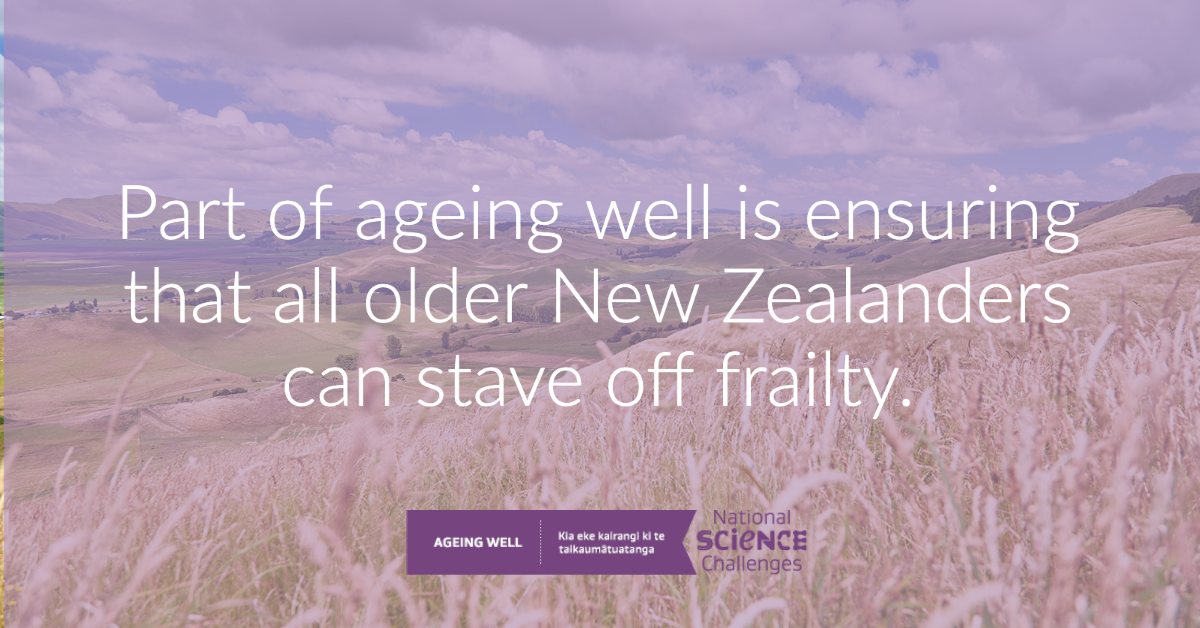Ageing Well is pleased to announce a newly funded project that explores the impacts of social frailty in Aotearoa New Zealand.
The research project, led by principal investigator Dr Ruth Teh, is intent on discovering more about how identifying social frailty, in particular, can help older New Zealanders.
Frailty is a multidimensional geriatric condition that is indicated by a decline in physical and cognitive functions, ultimately leading to increased vulnerability. Physical frailty has a demonstrated increase in the risk of falls, worsening disability, hospitalisation, residential care admissions, and mortality. It also results in increasing healthcare needs, potentially placing greater stress on the health system.
However, a new type of frailty has recently emerged as a separate risk factor in ageing: social frailty. This can be defined as a “continuum of being at risk of losing, or having lost, resources that are important for fulfilling one or more basic social needs during the life span” (Bunt et al, 2017). Potentially, it has a downstream effect on the intellectual and instrumental activity of daily living through declining social roles, social networks, and social activity.
The research team, based at the University of Auckland, aims to develop a culturally-specific social frailty scale for Aotearoa New Zealand. This involves identifying the constructs of social frailty for Māori, Pacific, and non-Māori non-Pacific peoples.
Ageing Well Director Professor Louise Parr-Brownlie was pleased to support a project that would make an impact on the current inequity facing Māori and Pacific peoples in ageing well.
“This research project will shine a light on this important issue on social frailty and will make an impact on equity in terms of the design of services and potential outcomes,” said Professor Parr-Brownlie.
Co-Director Professor David Baxter anticipates the study to be a good fit for our organisation.
“Ageing Well is pleased to support a research project that aligns with our mission to enable all New Zealanders to reach their full potential,” said Professor Baxter.
By 2028, the population of New Zealanders aged over 65 is set to rise to over a million, which is 1 in every 5 people in Aotearoa New Zealand. By the middle of the century, it is estimated that the population aged over 65 will continue to increase to more than 1 in 4. This is significant for a small nation such as ours and will have a profound impact economically, socially, and politically.
Dr Teh said, “I am proud to be able to pursue this new line of interest that also links back to the previous research I have done with Ageing Well. The team we have assembled and the partnerships we have built with community-based organisations will ensure that we can develop a social frailty scale that accounts beyond a western understanding of wellbeing.”
The project is scheduled to be completed by April 2024.
Read more about the project at the Social Frailty research page.

